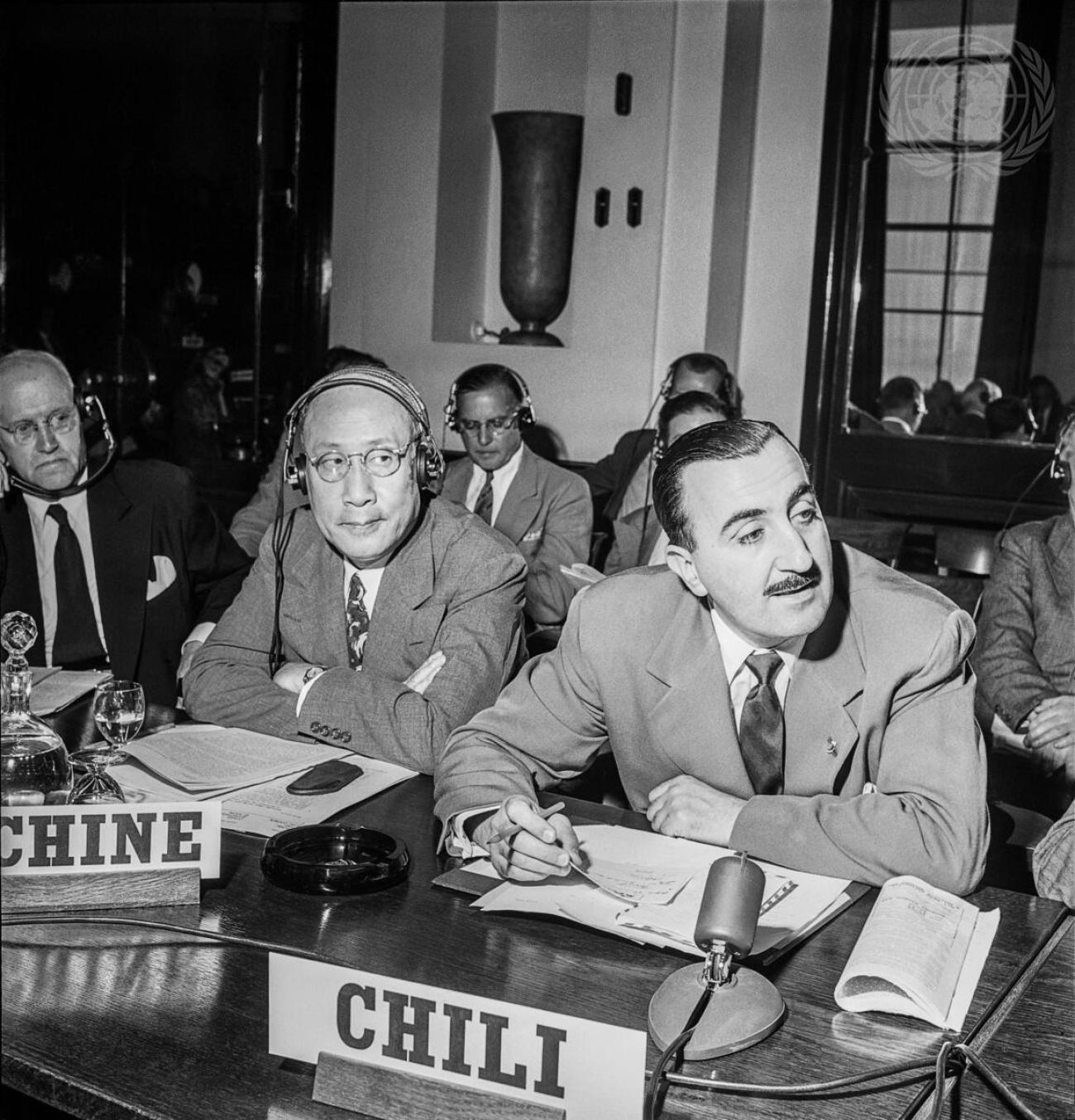Chile takes a leading role championing the Universal Declaration of Human Rights

"All human beings are born free and equal in dignity and rights". This might be one of the most inspiring phrases in international law. It belongs to the Universal Declaration of Human Rights, which marks its 75th anniversary of adoption on the 10th of December 2023.
Rooted in freedom, justice and peace, the Declaration prompted the normative development known nowadays as international human rights law. As a result of its humanizing potential, groups that were historically scorned are now playing a leading role in treaties and instruments that fight against racism and other forms of discrimination and advance the right of women, indigenous peoples, people with disabilities, the LGBTI community and many others.
But the scope of the Declaration is not limited to multilateral forums. Thanks to the commitment of many countries, and particularly to the drive of human rights advocates, we have catalyzed a true revolution in terms of providing legal protection to individuals, spanning regional treaties, national legislation, and constitutions in more than 90 States. For Chile, recently elected to be the newest member of the UN Human Rights Council, this is a matter of history and legacy. From its location in the Southern Hemisphere, Chile has played an active role in this revolution. A great deal is known — though not widely enough — about the role of Chilean leader Hernán Santa Cruz as one of the drafters of the 1948 Universal Declaration, whose tenacity was vital in getting economic, social, and cultural rights embodied in the Declaration.
A human rights legacy for the future
Championing the values of Chilean society in a post-war world, Santa Cruz advocated that human rights derive from "the fact of existing" – they are not granted by any state. He also supported the improvement of human welfare and the fair distribution of development benefits, with people's participation in the decisions that affect them. These core convictions continue to be influential internationally: the 2030 Agenda for Sustainable Development acknowledges drawing on the Universal Declaration. That is also the case in the Escazú Agreement — which Chile promoted and adhered to in 2022 — under which participation is a pillar for environmental decision-making in Latin America and the Caribbean, to name a few examples.
In times of crisis, the principles defended by Chile under the leadership of Hernán Santa Cruz seem to resonate louder even though they keep facing resistance. The economic ups and downs and the aftermath of the COVID-19 pandemic have demonstrated how crucial rights-based responses are to resilient development. When States overlook human rights, it exacerbates conflicts and structural inequalities at the expense of those who have traditionally been left behind. On the contrary, human rights-based systems have proven to protect individuals and communities better while preserving stability and social cohesion. Once again, the false dichotomy between human rights and development is debunked.
Changing times, changing aspirations
In line with the principles defended by Chile at the international level, in recent years, the Chilean people have expressed aspirations and demands for further progress in terms of economic, social, cultural, and environmental rights, promoting an economy that puts people and the planet at its core, while replacing the models that deepen inequality and erode the social fabric. At the same time, in a sovereign manner, the country continues the dialogue towards a new Constitution that renews the social contract and strengthens the trust between the people and the governing authorities.
We will soon sign the Cooperation Framework for Sustainable Development in Chile 2023-2026, which we have developed over the last year in close dialogue and coordination with the Government of Chile and with inputs from civil society, women, youth, people with disabilities, indigenous groups, academia, and the private sector.
The Framework will help align UN capacities with the priorities of the national agenda and guide the work of UN Chile in the country from 2023-2026, including a strong focus on promoting equality, particularly gender equality, and protecting all forms of economic, social, cultural and environmental rights. As part of these efforts, we will focus on including and empowering groups which are traditionally excluded from development and decision making, taking into consideration generational, cultural, and territorial intersectionality.
As we mark the 75th anniversary of the Universal Declaration — written in the handwriting of a Chilean —, we hope that this year the country can consolidate its path towards a more just and resilient future, promoting dignity and equality at the domestic level with the same conviction that Chile defends these principles at the global stage.
This blog was written by UN Resident Coordinator in Chile, María José Torres, and Regional Representative of the Office of the High Commissioner of Human Rights (OHCHR) for South America, Jan Jarab. It was edited and translated from Spanish by UN DCO.
For more information about the work of the UN in Chile visit Chile.un.org













